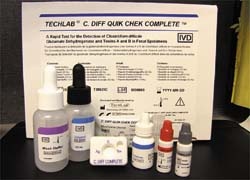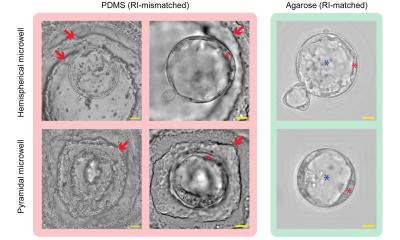Results from C. difficile test in less than 30 minutes
The US firm Inverness Medical has launched a new rapid test as an in vitro diagnostic aid for Clostridium difficile associated disease (CDAD).

Named the Techlab C. Diff Quik Chek Complete, the test detects glutamate dehydrogenase (GDH) and C. difficile toxins A and B in one simple assay, and can be used for screening while confirming the presence of toxigenic C. difficile strains, Inverness reports. C. difficile antigen glutamate dehydrogenase (GDH) is common to all C. difficile strains and has been identified as an excellent screening marker for the infection.
Results from faecal samples are provided in less than 30 minutes, enabling rapid diagnosis, patient management and isolation at an earlier stage, to reduce further contaminations.
The new test also detects toxigenic and non-toxigenic strains, including the new hyper-virulent C. difficile strain BI/NAP1/027 that is causing outbreaks of increasing severity and mortality across Europe and North America, the firm points out.
Regulatory clearances are now in process for use in the USA and Canada.
19.11.2008





